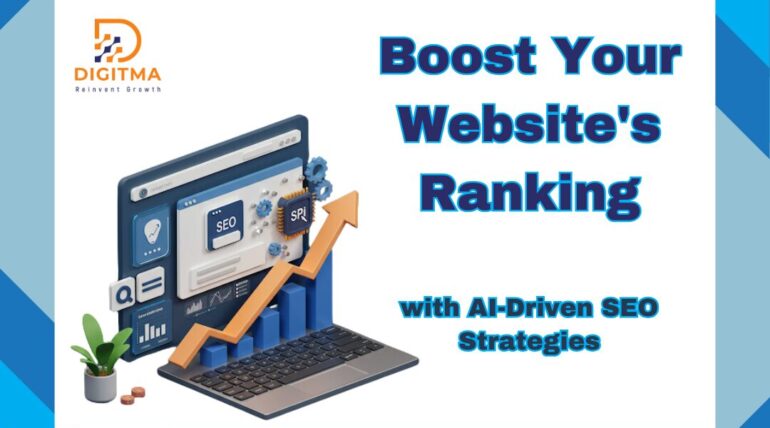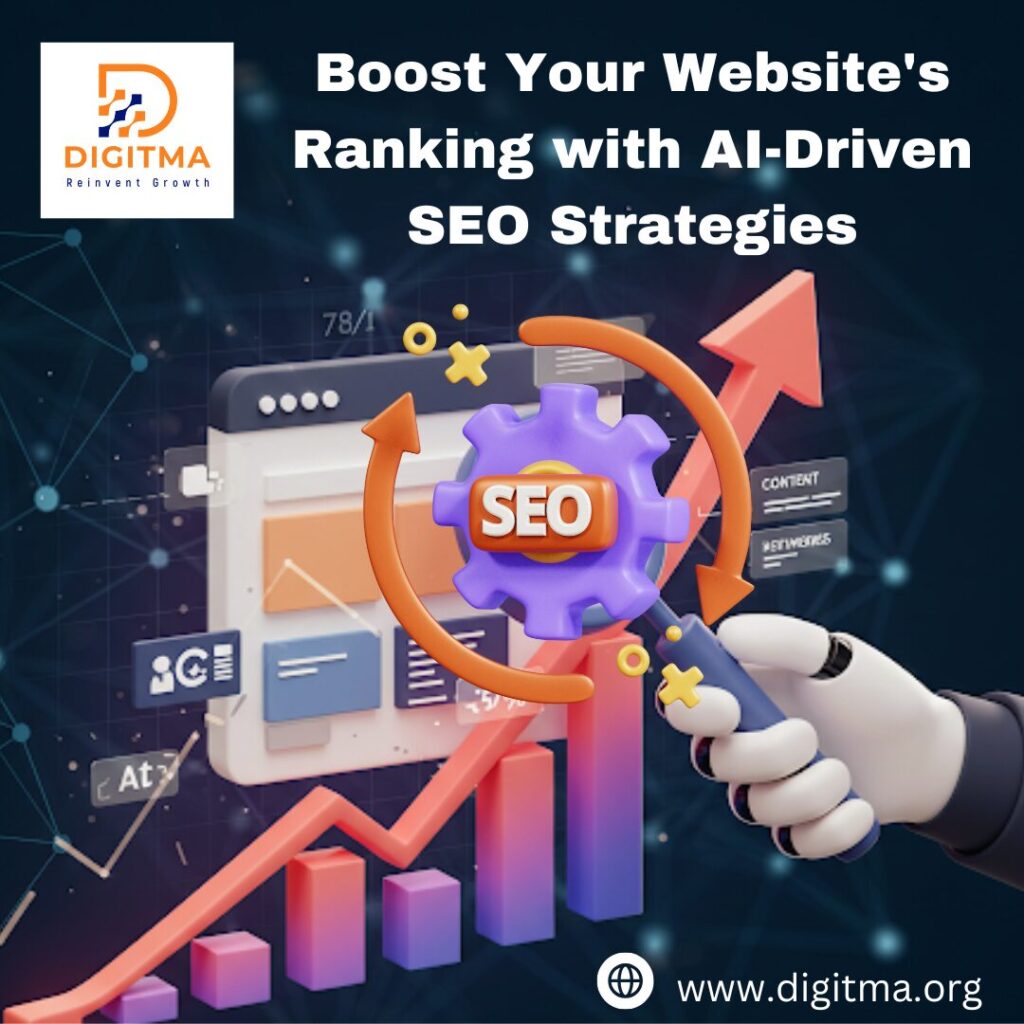
In today’s digital world, Search Engine Optimization (SEO) plays a crucial role in helping websites rank higher on search engines like Google. But with the internet constantly evolving, traditional SEO techniques are no longer enough to keep up with changing algorithms and user behaviors. This is where Artificial Intelligence (AI) comes in, transforming the way SEO works and making it more efficient and effective.
AI refers to the ability of machines to perform tasks that typically require human intelligence. This includes learning from data, understanding language, recognizing patterns, and making decisions. When applied to SEO, AI can analyze vast amounts of data quickly, identify trends, and even predict future search behaviors. This helps marketers create better strategies to improve website rankings, drive more traffic, and reach the right audience.
One of the key ways AI helps with SEO is through content optimization. AI tools like Surfer SEO, Clearscope, and Frase can analyze top-ranking pages and suggest the best keywords, headings, and content structure. This ensures that your content matches what search engines and users are looking for, increasing the chances of higher rankings.
AI also plays a major role in keyword research. Traditional keyword research tools require manual effort, but AI-powered tools like SEMrush and Ahrefs can quickly find high-ranking keywords based on real-time data. They can even predict which keywords will become popular in the future, giving marketers a competitive edge.
Another important area where AI excels is in voice search optimization. With the rise of virtual assistants like Siri, Alexa, and Google Assistant, more people are using voice commands to search online. AI helps optimize content for these voice-based queries by understanding natural language and long-tail keywords that people commonly use in conversations.
AI also improves user experience (UX), which is a key factor in SEO. Google’s algorithms now focus heavily on user satisfaction, including page load speed, mobile-friendliness, and how long users stay on a website. AI tools can analyze user behavior to identify areas where a website can be improved, ensuring a smoother and more engaging experience.
Moreover, AI-powered analytics tools provide deeper insights into website performance. Tools like Google Analytics with AI features can track user behavior, monitor traffic sources, and even suggest data-driven actions to improve SEO strategies.
In fact, according to a report by BrightEdge, over 60% of marketers have already adopted AI in their SEO strategies, and this number is expected to grow as AI technology advances.

How AI is Revolutionizing SEO
AI is reshaping SEO in many ways, making it more dynamic and data-driven. Traditional SEO required manual efforts like researching keywords, analyzing competitors, and optimizing content. Now, AI automates these tasks with greater accuracy and speed, allowing marketers to focus on strategy and creativity.
1. Content Creation and Optimization
AI tools like Jasper AI, Copy.ai, and Frase help create good content quickly. They understand what people want to read and suggest:
- Keyword Placement: They tell us where to put important words so more people can find our content.
- Content Structure: They show us how to organize our writing like the best articles.
- Meta Descriptions and Title Tags: They help us write short summaries and titles that make people want to click on our content.
A study by Content Marketing Institute (2024) found that businesses using AI for content creation experienced a 35% increase in organic traffic compared to those relying solely on traditional methods.
2. Advanced Keyword Research
AI tools like SEMrush, Ahrefs, and Moz have transformed keyword research. They analyze large datasets to:
- Identify high-performing keywords
- Discover long-tail keywords with less competition
- Predict emerging trends using real-time data
For example, SEMrush’s AI algorithm identifies keyword gaps, helping marketers target untapped opportunities. According to HubSpot’s SEO Trends Report (2024), companies using AI for keyword research saw a 40% improvement in search rankings within six months.
3. Voice Search Optimization
With over 4.2 billion digital voice assistants in use globally, optimizing for voice search has become critical. AI helps by:
- Understanding natural language queries
- Optimizing for conversational keywords
- Enhancing local SEO to target voice-based searches
AI-driven tools like AnswerThePublic and Speakable help create content that matches voice search queries, improving visibility on platforms like Google Assistant and Alexa.
4. User Experience (UX) Enhancement
Google’s algorithm prioritizes websites with excellent user experiences. AI tools such as Hotjar, Crazy Egg, and Google Analytics (with AI integrations) track user behavior to:
- Identify drop-off points in user journeys
- Improve page load speed and mobile responsiveness
- Personalize content based on user preferences
According to Think with Google (2023), websites optimized for UX with AI tools experienced a 25% lower bounce rate and a 30% increase in average session duration.
5. Predictive Analysis and Trend Forecasting
AI excels at predicting future trends through predictive analytics. Tools like MarketMuse and Crimson Hexagon analyze historical data to forecast:
- Search trends before they peak
- Consumer behavior patterns
- Content topics likely to gain popularity
Marketers can create content ahead of competitors, securing higher rankings. A report by Gartner (2024) suggests that predictive SEO strategies powered by AI will be a standard practice for 70% of digital marketers by 2025.
6. Automation of Technical SEO
Technical SEO ensures search engines can crawl and index a website effectively. AI automates tasks like:
- Crawl error detection using tools like Screaming Frog SEO Spider
- Schema markup generation for rich snippets
- Site performance monitoring with AI-driven audits
This automation saves time and reduces human error, improving website performance and search visibility.
7. AI-Powered Link Building
Link building remains vital for SEO, and AI simplifies the process. Tools like BuzzSumo and LinkResearchTools use AI to:
- Identify high-authority backlink opportunities
- Analyze competitor backlinks
- Automate outreach campaigns for guest posting
According to Backlinko (2023), websites using AI for link-building saw a 22% faster increase in domain authority compared to traditional methods.
Challenges of Using AI in SEO
While AI brings many advantages to SEO, it also presents several challenges:
1. Data Privacy Concerns
AI systems need a lot of data to function well. Collecting and using this data can raise privacy issues, as individuals may not want their personal information used without consent. It’s important to handle data responsibly to protect people’s privacy.
2. High Implementation Costs
Advanced AI tools can be expensive to develop and maintain. This high cost can be a barrier, especially for smaller organizations with limited budgets. Investing in AI requires careful consideration of the potential return on investment.
3. Over-Reliance on Automation
Relying too much on AI for content creation can lead to a loss of the human touch. Automated content may lack creativity and emotional connection, which are important for engaging readers. It’s crucial to balance automation with human input to maintain content quality.
4. Constant Learning Curve
The field of AI is rapidly evolving, requiring SEO professionals to continuously learn and adapt to new technologies. This ongoing learning process can be challenging and time-consuming, necessitating a commitment to continuous education.
Future of AI in SEO
Artificial Intelligence (AI) is rapidly transforming how websites are found and ranked on search engines—a process known as Search Engine Optimization (SEO). Looking ahead, AI is set to make SEO even more effective and personalized.
Hyper-Personalization
In the future, AI will enable websites to offer content tailored specifically to each visitor’s interests and needs. By analyzing user behavior, preferences, and search history, AI can present information that is most relevant to the individual. For example, if you often search for healthy recipes, an AI-powered website might highlight new nutritious meal ideas just for you. This level of personalization makes your online experience more engaging and useful.
AI-Generated Videos for SEO
Videos are becoming a key part of how we learn and entertain ourselves online. AI is stepping in to create videos that match what people are searching for. For instance, if many users are curious about how to plant a garden, AI can generate a helpful video demonstrating the steps involved. These AI-created videos can improve a website’s visibility on search engines, as search algorithms often prioritize video content.
Visual Search Optimization
Visual search allows users to search using images instead of text. AI enhances this by recognizing and understanding the content of images. Imagine taking a picture of a flower and using it to find information about that specific plant. AI makes this possible by analyzing the image and matching it with relevant data. As visual search becomes more common, websites optimized with AI to handle these queries will be more likely to appear in search results.
Conclusion
Artificial Intelligence (AI) is changing how we improve our websites so more people can find them. By using AI, we can make our content better, choose the right words to attract visitors, and organize our websites to be more user-friendly. AI also helps us understand what our visitors like and predict what they might be interested in next.
This means we can create content that matches their needs and keeps them coming back. While there are some challenges, the advantages of using AI in SEO are clear. It makes our websites smarter and more effective, helping us reach a wider audience and provide a better experience for our visitors. In short, AI is a powerful tool that can make our websites more successful and engaging.


